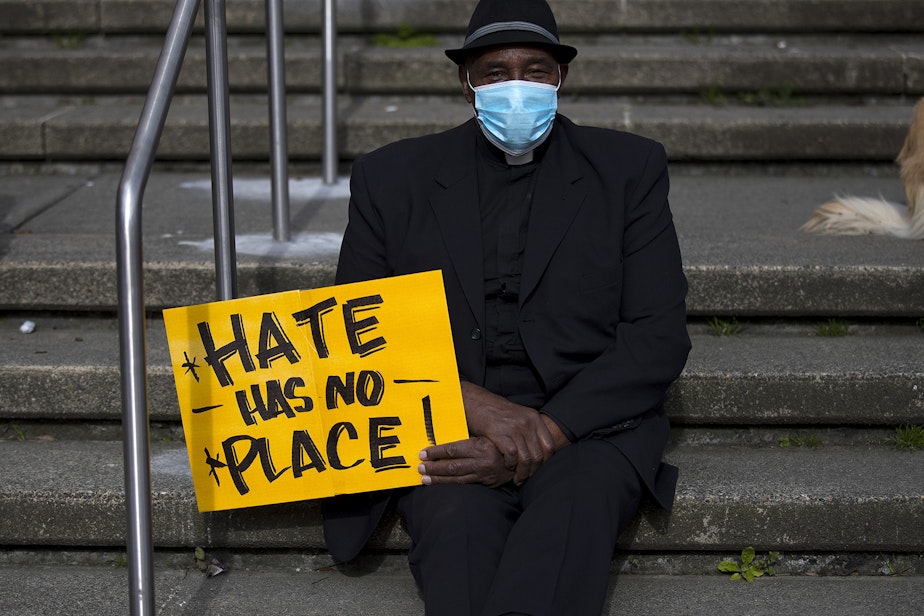Seattleites reported hundreds of bias incidents and hate crimes last year. A small fraction made it to court.

Let’s start at the beginning of a case.
First someone has to report that a hate crime took place. These events are often under-reported.
After that, law enforcement has to investigate.
Hate crimes have to clear a lot of hurdles, spokesperson for the King County prosecutor Casey McNerthney said.
“Of those reports how many go to a detective? How many is that detective able to look at? How many get referred to the prosecutor’s office? How many we can prove beyond a reasonable doubt?” he said.
In King County, a fraction of incidents involving bias have made it to court, though last year alone people called Seattle police about close to 800 incidents involving bias — almost double the year before.
Sponsored
Money and staff are two issues a case can face.
The Seattle Police Department has one detective dedicated to investigating hate crimes. The King County Sheriff’s office has none.
A bill languishing in committee at the King County Council would create a hate crimes unit in the Sheriff’s office, at a cost of around $1 million a year.
The bill was introduced in April and has been deferred three times since.
The King County Sheriff’s office would love more funding to bring on more detectives, said spokesperson Sgt. Tim Meyer, but hate crimes are already being investigated – and getting extra scrutiny from higher-ups – without a dedicated unit.
Sponsored
“Those cases get special attention from the moment that deputy arrives,” Meyer said.
More dedicated staff would make it easier for prosecutors to make their case, McNerthney said.
This year prosecutors have filed 34 cases, according to the King County Prosecuting Attorney’s office.
Last year they filed 72, which was a sharp increase from 42 cases in 2019 and 30 in 2018.
Most of the cases involve hatred based on race and/or ethnicity with the bulk of those against Black people.
Sponsored
Of the nearly 800 bias-related incidents reported to Seattle police last year, 300 incidents involved someone making an offensive and derogatory comment on someone else’s background, around 350 incidents involved someone making a derogatory comment as they committed a crime, and nearly 140 incidents involved an alleged perpetrator who specifically targeted another person because of their identity.




